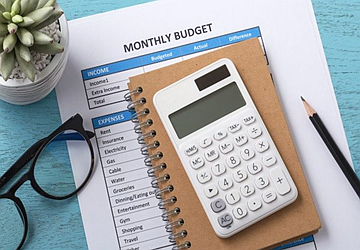Many people may consider a pension a faraway dream, particularly those just beginning their careers. However, to take advantage of the compounding effect over time, the earlier you start, the better it is. It makes sense that many of us are putting off considering pensions, yet discussions and recommendations on this subject sometimes need to be clarified. However, some strategies may have unfavorable effects.

Even the savviest among us may find financial considerations difficult due to the abundant goods available on the market and the numerous institutions competing for your business. Regardless of your age or financial condition, we'll go over practical steps you can take to begin saving for pension in this article. Let's begin. Getting Ready for Pension: what is it? The process of creating objectives for your golden years and the choices and activities required to reach those goals is known as pension considering. It includes determining the sources of one's income, projecting costs and cash flows, starting a savings scheme, and overseeing assets.
Why Should You Make Pension Schemes?
Regretfully, pension is a phase of life that is dominated by the following for the majority of citizens who have not made schemes for it:
l Restricted earnings
l Having trouble covering essential living costs
l Reliance on minors
l Problems with healthcare and associated costs
l Pains and sacrifices, and no more enjoyment in life
Living off gifts from family members during pension may be difficult and embarrassing for retirees who need more money. Most workers do not participate in pension schemes. Private Individuals mostly rely on the following generation to help them as they.
Revenue derived from real estate and Bank deposit interest
l How to Set Your Pension Scheme?
Let's discuss some strategies that might help you consider your pension savings and finances.
l Determine Your Financial Goals
Establishing your pension objectives is the first step. Consider how much you will need to save to achieve your objective of living comfortably on a pension. Aim to hold ten to fifteen per cent (10-15%) of your annual salary for pension. This might change according to your pension objectives, lifestyle, and remaining time.
l Utilize Pension Programs Offered to Employers
Utilize the pension scheme if your work provides one! According to the banks, "most nations offer considerable tax credits for pension savings." "Moreover, businesses often match efforts to a predetermined amount for worker pension schemes, allowing the funds to grow more quickly." Since this is almost free money, try to donate enough to benefit from the match.
l Save as Much as Possible
As previously said, it is best to begin pension savings as soon as possible. You'll have a longer window for compound interest to expand your investment. For instance, if you start to save one hundred ($100) dollars a month by age twenty-five (25) and have a 7 per cent yearly return on your initial investment, you would have more than three hundred and eleven thousand dollars ($311,000) by the time you are sixty-five (65). But if you start saving the same amount at age thirty-five (35), you will have less by age 65.

l Examine and Modify Your Scheme
As you approach your pension, examine the balances in your pension accounts, project your future spending, and assess if you still need to save more money to meet your pension objectives. As you get closer to pension, consider changing your investing approach to be less risky.
l Think about Personal Pension Accounts
Open your pension (IRA or ISA) with an institution of banking in your nation if your company does not provide annuity schemes or if you would like to increase your pension savings. Additionally, they are often tax-free up to a certain amount, so before creating an account and making a deposit, confirm the current limitations.
l Cut Back on Your Spending
Spending less is one method to increase your pension savings. You are reducing discretionary spending, such as dining out or clothing purchases. Consider moving to a less expensive location or reducing your house load to reduce housing costs. Make and follow a budget; every penny you save can go towards your pension funds.
l Remain Calm and Obedient
Discipline and dedication are necessary while saving for a pension. Refrain from giving in to the urge to splurge on needless big purchases. This might entail postponing buying a new automobile or the newest technological gadget and declining-priced trips. But eventually, when you put aside money on your way to a happy pension, your compromises will be worth the effort.
l Think about Fundamental Investing Concepts
Savings methods are as significant as total savings. What you have saved for your pension largely depends on inflation and the kind of investments you make. Recognize the investments made in your pension scheme or savings. Find more about the investing possibilities offered by your scheme and pose questions. Invest your funds across a range of securities. You will likely lower risk and increase return when you diversify in this way. Your age, aspirations, and financial situation are just a few variables that affect your investment mix over time. Knowledge and financial stability go together hand in hand.
The Bottom Line
More than ever, it is up to people to prepare for pension. Particularly in the private sector, only some workers can rely on a defined benefit pension offered by their company. When you move to defined-contribution schemes, like 401(k)s, you also manage the assets instead of your employer. Finding a balance between a desired quality of living and reasonable return expectations is one of the most challenging parts of developing a thorough pension scheme. The best action is to build an open investment that can be modified regularly to consider evolving pension goals and market conditions.








